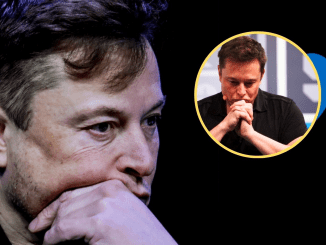
The digital age has turned social media into a battleground for celebrity exchanges, often offering unfiltered insights into their personalities and public personas. A recent spat between Jimmy Kimmel and Elon Musk has captivated audiences, highlighting this trend. The dispute began when Musk, known for his provocative tweets, labeled the talk show host an “insufferable nonsense propaganda puppet.” True to form, Kimmel responded with a sharp, six-word retort, proving that brevity can indeed pack a punch.
This clash is just the latest example of how social media amplifies public figures’ interactions, blurring the line between personal opinions and curated public images. It’s not just entertainment—it’s a reflection of how celebrities navigate their influence in an increasingly connected world.

Elon Musk, the billionaire entrepreneur and owner of X (formerly Twitter), is no stranger to controversy, often using the platform to share unfiltered opinions on a wide range of topics. Recently, he turned his attention to Jimmy Kimmel, calling the late-night host an “insufferable nonsense propaganda puppet.” The comment, characteristic of Musk’s candid and sometimes confrontational style, was part of a broader discussion that drew attention across social media and news outlets. Musk’s choice of words was bold, even for him, sparking immediate responses from fans and critics alike.
Musk’s comment was not entirely unexpected, given his history of targeting public figures he believes contribute to narratives he opposes. Over the years, Musk has frequently clashed with members of the media and entertainment industry, often challenging their credibility or motivations. This latest critique of Kimmel reflects his broader frustrations with what he perceives as biases in media and entertainment, a theme that resonates with his loyal followers but alienates many others.

By singling out Kimmel, Musk reignited debates about the role of public figures in shaping societal discourse. The phrasing of “insufferable nonsense propaganda puppet” struck a chord, partly because of its harshness and partly because it encapsulates Musk’s disdain for figures he believes promote one-sided narratives. Whether intended as a genuine critique or a provocation, the comment succeeded in sparking widespread conversation.


